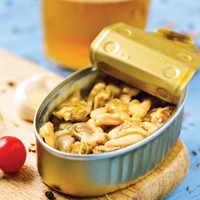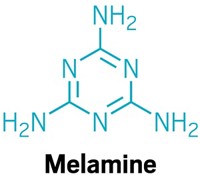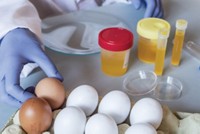Advertisement
Grab your lab coat. Let's get started
Welcome!
Welcome!
Create an account below to get 6 C&EN articles per month, receive newsletters and more - all free.
It seems this is your first time logging in online. Please enter the following information to continue.
As an ACS member you automatically get access to this site. All we need is few more details to create your reading experience.
Not you? Sign in with a different account.
Not you? Sign in with a different account.
ERROR 1
ERROR 1
ERROR 2
ERROR 2
ERROR 2
ERROR 2
ERROR 2
Password and Confirm password must match.
If you have an ACS member number, please enter it here so we can link this account to your membership. (optional)
ERROR 2
ACS values your privacy. By submitting your information, you are gaining access to C&EN and subscribing to our weekly newsletter. We use the information you provide to make your reading experience better, and we will never sell your data to third party members.
Environment
Europe's Dioxin Scare Widens
Food Safety: German eggs, poultry, pork are under scrutiny for contamination
by Sarah Everts
January 17, 2011
| A version of this story appeared in
Volume 89, Issue 3

A food safety scandal continues to rock Germany after regulators discovered that animal feed contaminated with the cancer-causing agent dioxin has passed into eggs, poultry, and pork.
At the heart of the scandal is the German company Harles & Jentzsch, which supplied 3,000 tons of dioxin-contaminated fatty acids to animal feed companies. The fatty acids sold to the animal feed companies were intended for use in industrial processes, not as a nourishing ingredient for animal feed.
In March 2010, the company measured amounts of dioxin in the fatty acids it was selling for animal feed at twice the allowable level. But agriculture authorities in Germany learned of the contamination problem only in December. On Jan. 10, the company filed for insolvency.
In the past two weeks, millions of eggs from chickens that may have been given the contaminated feed were pulled off shelves in Germany, and some 5,000 farms across the country were closed for investigation. South Korea and China have blocked German poultry and meat products, and Japan is asking importers to report the arrival of German pork, poultry, and eggs. Stores in the U.K. have pulled from shelves products that may contain some of the tainted eggs.
Levels of dioxin above legal limits have been found in a half-million eggs and several pigs, says Miriam Ewald, a spokeswoman for Germany’s Federal Institute for Risk Assessment. However, she says, there is no danger to public health. Although dioxins can cause cancer, problems arise only if they are consumed over a long period because the chemical collects in the body, she explains.
Dioxins are aromatic, polyhalogenated compounds. The German Federal Ministry for Food, Agriculture & Consumer Protection has not reported which particular dioxins were present in the contaminated feed.
German Agriculture Minister Ilse Aigner has called for stricter regulations on food safety across Europe and vowed that those responsible “will be held accountable.”
The last dioxin scare in Europe was in 2008, when unacceptable levels of the contaminant were found in mozzarella cheese produced in Italy.





Join the conversation
Contact the reporter
Submit a Letter to the Editor for publication
Engage with us on Twitter